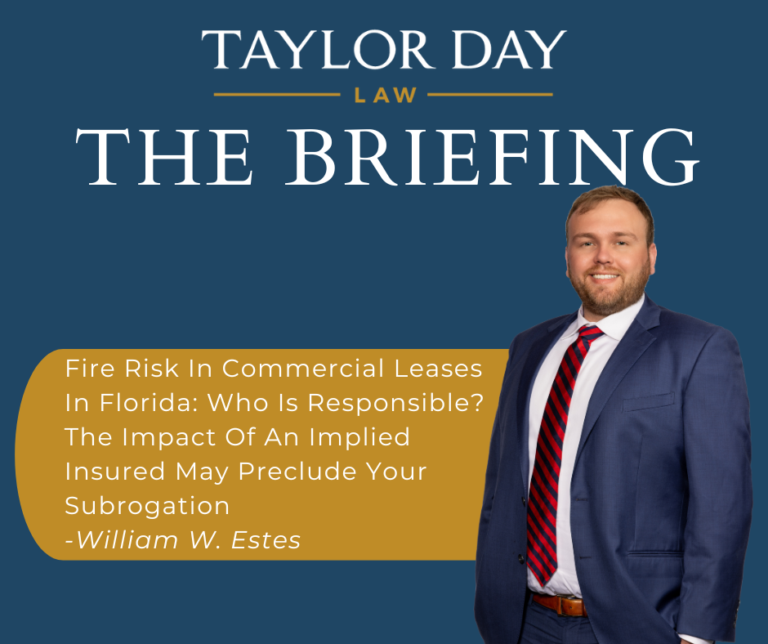We did not start the fire, but someone is still financially responsible for damages under the terms of a commercial lease. It depends on the terms and risk-shifting provisions within a lease. While the taste of leases may be sweet, when it burns, burns, burns, you should have a legal team ready to hop on their feet.[1]
In most, hopefully all, leases there are terms dealing with fire loss and provide a structure of who is responsible when damage reaches various levels from a small loss to a total loss. The tenant and landlord are responsible for negotiating their respective rights, duties, and remedies under a lease. In particular for this article, risk-shifting provisions contemplate whether the landlord or the tenant would bear the risk of fire damage/loss because “the parties are in the best position to allocate the risk of loss for fire damage.” See Underwriters of Lloyd’s of London v. Cape Publ’ns, Inc., 63 So. 3d 892, 895 (Fla. 5th DCA 2011) (“…[T]his court concludes that the parties are in the best position to allocate the risk of loss for fire damage…”); see also Cont’l Ins. Co. v. Kennerson, 661 So. 2d 325, 326-30 (Fla. 1st DCA 1995) (examining several lease provisions to determine the parties’ intent as to who should bear the risk of loss for fire damage). However, this may impact an insurance company’s ability to subrogate by making a party to the lease an implied co-insured.
In Florida, there is a case-by-case approach to interpreting a lease, meaning it is read as a whole to “ascertain the intent of the parties as to who should bear the risk of loss for damage to the leased premises…” State Farm Fla. Ins. Co. v. Loo, 27 So. 3d 747, 750 (Fla. 3d DCA 2010).
Over the years, Florida Courts have established some guideposts to determine who is responsible for fire loss. However, in a scenario where a Landlord is responsible for a fire loss, the Tenant may be a beneficiary of the Landlord’s insurance policy. If this occurs, then a Tenant may be an implied co-insured under the lease, and the Landlord’s insurance company would lose the right to subrogate. See Kennerson, 661 So. 2d at 328; see also Fairchild for Use & Benefit of State Farm Fire & Cas. Co. v. W. O. Taylor Commercial Refrigeration & Elec. Co., Inc., 403 So. 2d 1119, 1120 (Fla. 5th DCA 1981); compare to Zurich American Insurance Company v. Puccini, LLC, 271 So. 3d 1079 (Fla. 3d DCA 2019).
Ultimately, someone is bearing the risk of a fire loss in a commercial lease. As either a tenant, landlord, or insurance company, you should be aware of who is bearing this risk. Whether you need assistance constructing or negotiating your lease or perhaps you wish to know if you could subrogate for a loss, Taylor Day has a team of experienced attorneys who can assist you.
[1] It is not necessary for your legal team to have a refined musical palate, but I personally would not trust someone who is not a Johnny Cash fan and is willing to make a bad joke to prove it.

